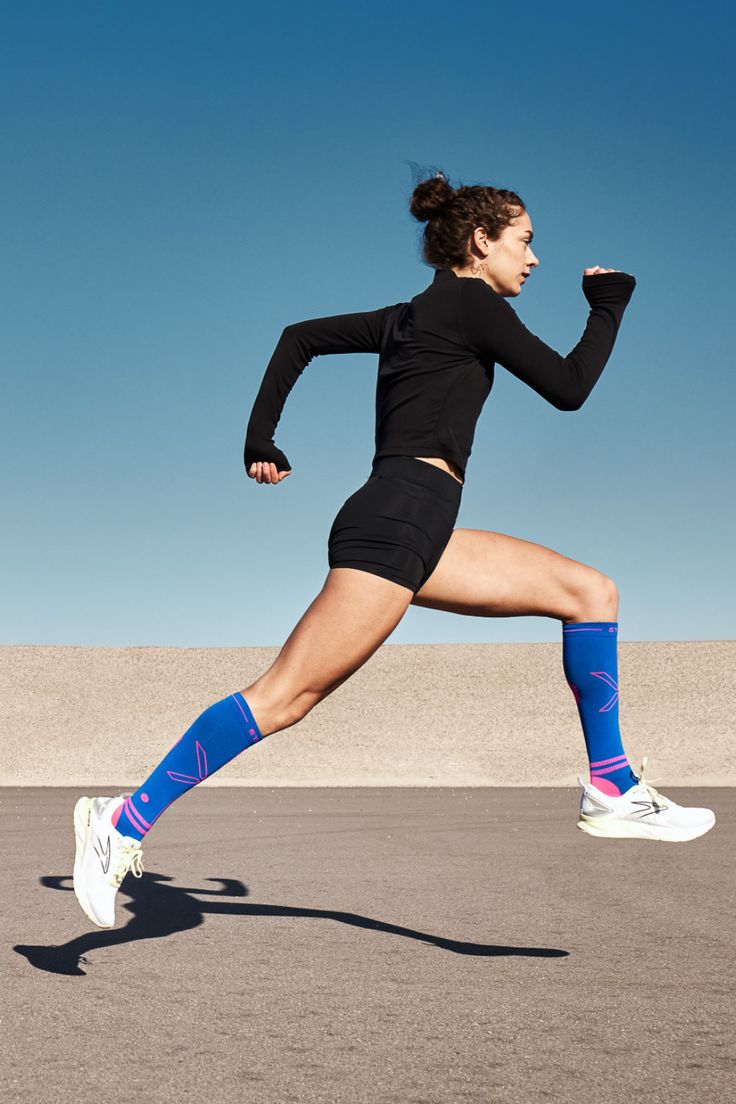
Do you think there is a relationship between personalized nutrition and the prevalent use of caffeine in the athletic realm? Well, the answer is obvious. The synergy between these two factors is not a coincidental combination; it is a purposeful pairing that athletes frequently employ to maximize their performance.
Let's explore this link and explain why it's a calculated decision in the pursuit of athletic success rather than a matter of choice.
What is Caffeine Intolerance?
Caffeine, a favorite of many athletes, is renowned for its ability to offer a quick energy boost and improve alertness. However, for some people, this seemingly harmless stimulant can cause discomfort and disruption.
Caffeine intolerance is a condition that requires attention in the pursuit of optimal sports performance.
Caffeine intolerance is more than just a dislike of the bitter taste of coffee or feeling anxious after consuming an energy drink. It is a physiological response that happens when the body struggles to adequately metabolize and digest caffeine. This can have a variety of negative consequences, affecting both bodily and emotional well-being.

Manifestations of Caffeine Intolerance:
Recognizing the indicators of caffeine intolerance is critical for athletes. These can appear in a variety of ways, including, but not limited to:
- Digestive issues: Upset stomach, nausea, or gastrointestinal discomfort.
- Cardiovascular effects: Increased heart rate and palpitations.
- Nervous system responses: Jitters, restlessness, and heightened anxiety.
- Headaches: Caffeine intolerance may trigger headaches or migraines.
Sensitivity or Intolerance- Which One is It?
It is critical to distinguish between caffeine sensitivity and intolerance. While sensitivity might cause modest reactions, intolerance causes more severe and often disruptive symptoms.
Understanding these variances is critical in developing personalized nutrition regimens that are tailored to an athlete's specific physiological composition.
Caffeine’s Impact on Athletic Performance
Caffeine intolerance has a significant impact on sports performance. What should be a source of increased energy becomes a potential stumbling block. Caffeine intolerance can make training sessions difficult, and it can make it difficult for athletes to focus and perform optimally during contests.
What Is the Importance of Sports Genetics?
This is where sports genetic testing comes into play. Athletes can acquire insights into their body's unique caffeine response by identifying distinct genetic markers connected to caffeine metabolism.
This information allows for the creation of individualized dietary regimens that not only respond to individual needs but also take into account the intricacies of caffeine tolerance, optimizing performance and reducing setbacks.
Understanding caffeine intolerance is an important first step for athletes who want to realize their maximum potential. Recognizing and resolving caffeine intolerance as we traverse the complexities of individualized nutrition ensures that the energizing buzz intended to propel athletes forward does not become a stumbling block on their route to success.
You may also like:
- Is ADHD Genetic? - Causes and Heredity of AD/HD
- Energy Metabolism: Definition, Function, and Regulation
- Isotonic Exercise: Definition, Benefits, and Exercises
Which Genetic Factors Play a Role in Caffeine Intolerance?
Caffeine and its effects on the body are not simply determined by lifestyle choices; our genetic composition also plays a role. Caffeine's complicated tango with heredity determines how our systems metabolize and respond to this prevalent stimulant.
Understanding the genetic foundations of caffeine metabolism is a critical step toward understanding why some athletes flourish on caffeine while others struggle.
.jpeg)
Overview of Specific Genetic Markers Related to Caffeine Tolerance
Our DNA has a wealth of information that influences our specific responses to coffee. Certain genetic markers serve as indicators of how well our bodies break down and metabolize caffeine. These characteristics not only decide if you're a coffee expert or prefer a caffeine-free lifestyle; they also have practical implications for how caffeine affects athletic performance.
CYP1A2 Gene: The Caffeine Metabolism Maestro
The CYP1A2 gene is in the vanguard of the caffeine metabolism orchestra. This gene encodes the enzyme that breaks down caffeine in the liver. Variations in the CYP1A2 gene can result in varying amounts of enzyme activity.
Individuals with a rapid caffeine metabolism variant may experience faster caffeine clearance from their system, whilst individuals with a slower variety may experience caffeine staying in their bloodstream for a longer amount of time.
Understanding your CYP1A2 gene profile might help you understand how efficiently your body processes caffeine. This data is the foundation of individualized nutrition regimens, allowing athletes to fine-tune their caffeine intake for peak performance.
ADORA2A Gene: The Adenosine Receptor Regulator
Have you ever wondered why some people may consume caffeine close to bedtime and not lose sleep, while others find it upsets their sleep patterns?
The ADORA2A gene, which encodes adenosine receptors in the brain, comes into play. These receptors are involved in the regulation of sleep and wakefulness. Variations in the ADORA2A gene can affect a person's susceptibility to caffeine-induced sleep disorders.
ADORA2A gene analysis provides athletes with information about their susceptibility to caffeine-related sleep disorders. With this knowledge, they can deliberately time their coffee consumption to avoid disrupting their sleep habits.
PDSS2 Gene: The Caffeine Sensitivity Sentinel
Although it is less often explored, the PDSS2 gene is important in caffeine sensitivity. This gene is involved in the manufacture of coenzyme Q10, which is required for cellular energy production. Variations in PDSS2 can affect a person's caffeine sensitivity, determining how they respond to its stimulating effects.
Understanding the subtleties of the PDSS2 gene helps athletes customize their caffeine consumption to their level of sensitivity. This level of planning precision ensures that the energizing advantages of caffeine are utilized without overpowering the system.
These individual indicators emerge as essential characters in the delicate dance of genetics and coffee, influencing the narrative of how our bodies process and respond to this ubiquitous stimulant. As athletes explore their genetic makeup, these markers give not only knowledge but also a blueprint for optimizing caffeine consumption for peak athletic performance.
Signs and Symptoms of Caffeine Intolerance
Recognizing the signs and symptoms of caffeine intolerance is critical for athletes who rely on caffeine to power their performance.
Physical Symptoms
- Headaches
Caffeine is typically touted for its headache-relieving qualities when consumed in moderation. The story takes a different course for those who are caffeine intolerant. Caffeine, rather than providing relief, can cause headaches, which can progress to pulsing agony that lasts.
- Digestive Issues
Many people like a cup of coffee or an energy drink, but it might cause intestinal irritation in others. Caffeine sensitivity can cause upset stomach, nausea, or even severe gastrointestinal discomfort, interfering with an athlete's focus and physical well-being.
- Increased Heart Rate
Caffeine's heart-pounding effects are well-known, but for those who are caffeine intolerant, this can quickly escalate into an uncomfortable and rapid increase in heart rate. The exhilarating buzz meant to improve sports performance may instead become a cause of anxiety.

Cognitive and Emotional Symptoms
- Anxiety
Caffeine's stimulant characteristics can increase anxiety, and this impact may be worsened in persons who are caffeine intolerant. What should be a mental boost might become restless and uneasy, impairing an athlete's ability to focus and maintain composure throughout training or competition.
- Irritability
Caffeine's energizing effects can often take an unpleasant turn for people with intolerance, leading to increased irritability. The patience required for precision in training or competition may be jeopardized, thus harming overall performance and team dynamics.
Common Sources of Caffeine in Sports Nutrition

- Energy drinks: These brightly colored, frequently neon-hued beverages have become synonymous with the world of sports and fitness. Energy drinks, which contain caffeine, taurine, and other stimulants, are designed to deliver a rapid boost. Caffeine-intolerant athletes, on the other hand, should proceed with caution, as the concentrated caffeine level can cause severe responses.
- Pre-workout supplements: Pre-workout supplements, which are designed to improve exercise performance, frequently contain considerable levels of caffeine. While they are intended to increase energy levels, athletes who are caffeine intolerant must read labels carefully and look for alternatives to prevent potential setbacks.
- Sports gels and chews: Sports gels and chews are a go-to for athletes who require immediate energy during endurance exercises. Nonetheless, several of these products contain caffeine as a performance-enhancing ingredient. Strategic selection based on caffeine content becomes critical for those with sensitivity.
- Caffeine-infused snacks: The concept of infusing caffeine into snacks has gained traction in the sports nutrition world. Caffeine can be included in a variety of products ranging from protein bars to energy-boosting snacks. Caffeine-intolerant athletes must be diligent in studying ingredient lists to avoid unforeseen exposures.
- Coffee and tea: They are timeless beverages that should not be disregarded. Coffee and tea are still popular choices for sportsmen looking for a caffeine boost. While these beverages are versatile, athletes who are caffeine intolerant may need to check their intake and look into decaffeinated options to stay on track with their tailored nutrition regimens.
Navigating Caffeine Intolerance: Practical Tips for Athletes
The road to peak performance for athletes suffering from caffeine sensitivity requires a nuanced strategy.

Hydration
For athletes who are caffeine intolerant, increasing water consumption is critical. Hydration not only benefits overall health but also aids in the prevention of dehydration, which is a worry for individuals who avoid caffeinated beverages.
Sleep
Because caffeine has the potential to disrupt sleep patterns, athletes should emphasize healthy sleep. Consistent sleep patterns and avoiding caffeine-containing goods closer to bedtime can help with rest and recovery.
Nutrition
Athletes should take the initiative to investigate caffeine-free nutritional options. To sustain energy levels without provoking intolerance reactions, try herbal teas, decaffeinated coffee, and caffeine-free energy-boosting snacks.

Know What Caffeine Does to You with Uniqgene
Are you interested in learning how your body determines your caffeine response and impacts your athletic journey?
The answers may lie within yourself, waiting to be revealed by Uniqgene!
What we offer is not just a sports analysis, but it's a personalized roadmap designed to guide you on your quest for optimal athletic performance.
Take the plunge into a new era of sports performance optimization by contacting us at: hello@uniqgene.com










.jpg)








